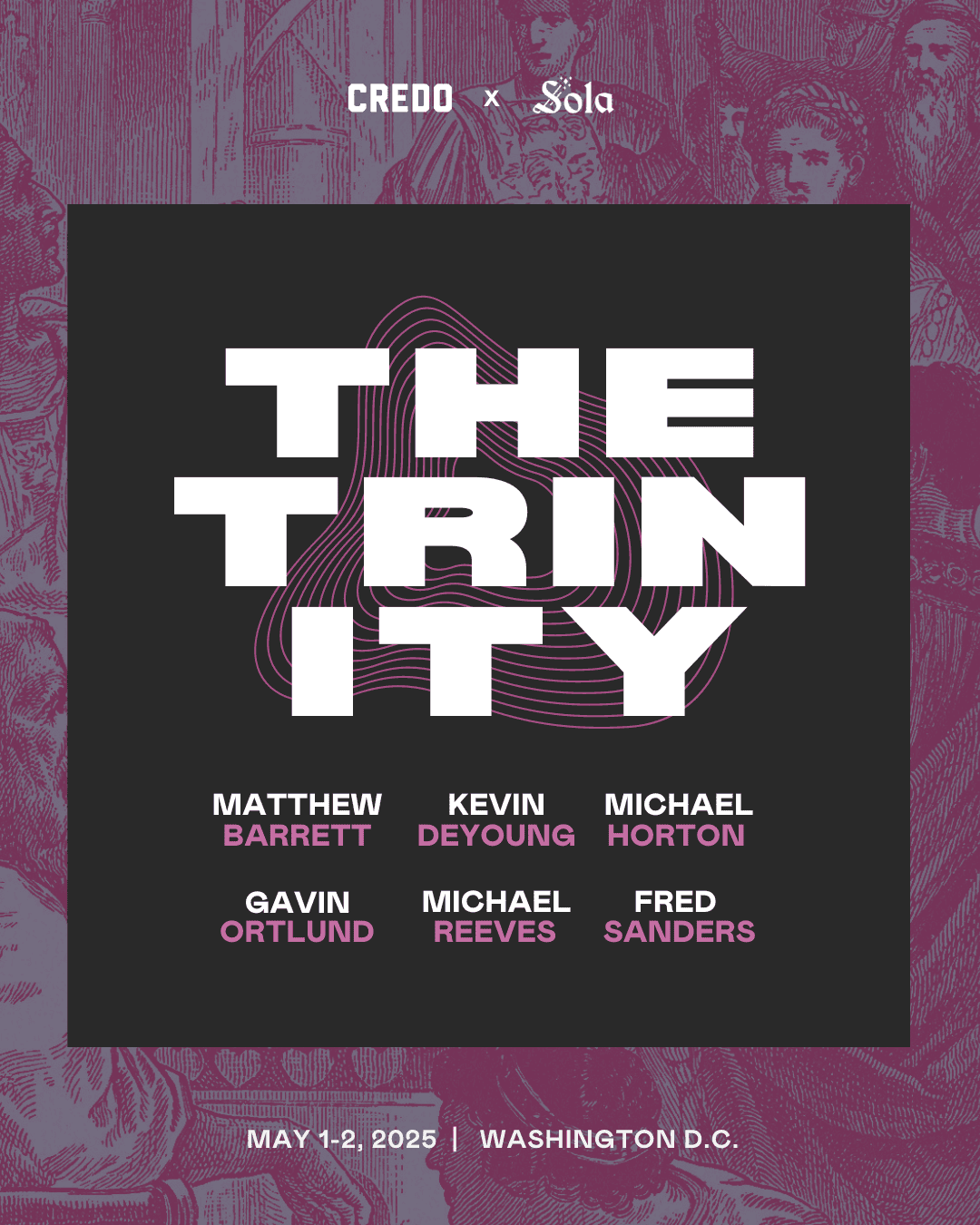
What is Natural Law?
David VanDrunen is a professor, ethicist, theologian, and minister. Additionally, he has written extensively on concepts such as the natural law, the two kingdoms, and a Christian’s role in the public square. In this short and introductory interview, Dr. VanDrunen held a discussion with Credo’s executive editor, Timothy Gatewood. During their conversation, VanDrunen addresses natural law and its relationship to natural theology, the Reformed doctrine of total depravity, John Calvin’s sensus divinitatis, and a practical use of natural law for Christians today. David VanDrunen’s succinct definitions and accessible overview will prove helpful to readers – whether they are skeptical of the existence of natural law, have held a longtime commitment to the concept, or have never heard of natural law until today.
____________________________________________________________________________________
1. What is natural law and how is it distinguished from natural theology? Can a consistent thinker affirm one without the other?
To answer this question, I believe it’s helpful first to affirm the idea of natural revelation: through the created order, God reveals both his basic moral will for human beings and his own existence and nature. The former is natural law. When human beings reflect on this natural law and make claims about it, we might call this natural law theory (or perhaps natural law ethics). When human beings reflect on and make claims about the latter, the natural revelation of God’s existence and nature, they’re doing natural theology. So, you might note that natural law and natural theology are closely related, but there’s a very important difference between them. Natural law is objective; that is, it refers to God’s revelation and is thus independent of my existence or my theorizing about it. But natural theology is subjective; that is, natural theology is a human activity that reflects on and makes claims about God’s revelation of his existence and nature in the created order.
2. In your upcoming book Natural Law: A Short Companion, you state that “without natural law, Christianity would not make sense. The nonexistence of natural law would throw Christian claims about God, the gospel, and the moral life into disarray.” Why is natural law such a load-bearing concept?
If we live in a morally orderly world, then rebelling against the natural law cuts against human nature and against the way the world works. Share on X I realize that that statement of mine may strike many people as an exaggeration when they first read it. But it’s remarkable how much traditional Christian doctrine presumes the idea of natural law. You may not always see natural law on the surface, but it’s a crucial part of the infrastructure of Christian theology. To simplify, I would point out that human responsibility before God is fundamental to Christianity. No one would deny that. Yet a great many human beings throughout history have never been confronted with God’s special revelation. Such people can be accountable to God only if they know his will through another means—that is, through the natural law. Hence, natural law explains why the evil conduct of all people is actually sin, it explains why the preaching of the gospel is relevant and intelligible to all people, and why God is just in calling all people before his final judgment. There’s certainly much more that could be said, but this is one basic reason why natural law is such a “load-bearing concept,” as you put it.
3. But what about the Reformed emphasis of total depravity? Isn’t the created order corrupted by the Fall? If man is totally depraved, and the created order is corrupted, then how can fallen man know moral truth through creation?
Some of these critics confuse natural law itself from natural law theory. Because of sin, human beings will inevitably err when reflecting on and interpreting natural revelation. Hence, all natural law theories (and all natural theologies) are fallible. But the fall doesn’t change the fact that God reveals his law in the created order and that human beings are accountable to him for their response to this revelation. That gets to the core concern about why a doctrine of natural law is a crucial part of Christian theology. On the one hand, a biblical doctrine of sin means that we can’t be naively optimistic about the moral reasoning of non-Christians. On the other hand, the doctrine of common grace is also important. God preserves human intellectual faculties and enables many non-Christians to make correct and insightful moral judgments, a fact we can be thankful for every day we live in this world. To put these two concerns together, we might say that natural law will never bring us anything like utopia, but it does play an important preservative function in God’s providential government of this sinful world.
4. To some, it may seem strange to critique natural law or natural theology at all. Are these not simply ways of describing natural revelation? If someone affirms natural revelation, must they also affirm natural law and natural theology?
This gets back to my answer to the first question. Those who affirm natural revelation are simultaneously affirming natural law, since natural law is one aspect of natural revelation. A person could technically affirm natural revelation but not affirm natural theology: that would entail saying that God reveals his existence and nature in the created order but human beings have no ability to understand or interpret that revelation. That would be a caricature of the biblical doctrine of sin, however (even in its strong Reformed sense, which I affirm). Romans 1 not only affirms the reality of natural revelation (1:20) but also says that rebellious human beings actually know God through this revelation (1:21) and know that their sins deserve judgment (1:32). One way to think about these things is this: Natural revelation and natural theology both exist, but while natural revelation is infallible, natural theology is fallible.
5. The terms “natural law” and “natural theology” are not found in Scripture. Are these concepts grounded in exegesis, or are they non-biblical metaphysical claims? If we must use Scripture to prove the existence of natural law, does that not, paradoxically, weaken the case for it?
These are thoroughly biblical ideas. We find them explicitly in some biblical texts, such as Romans 1:18-32, mentioned above. We also find them implicitly elsewhere in Scripture. To mention just a handful of examples: the creation accounts describe a world that’s orderly and purposeful (Gen 1-2), God’s people have meaningful moral interaction with unbelievers (e.g., Gen 20), the psalmist states that the heavens declare God’s glory (Ps 29:1), Proverbs draws a great deal of its wisdom from observation of how this world works, and the Old Testament prophets held Gentile nations accountable for their wickedness (e.g., Amos 1:3-2:3). It’s also true that natural-law theory and natural theology make philosophical claims, and natural lawyers and natural theologians often make truth claims by appealing to created reality. The truths about the natural revelation of God’s nature or God’s law don’t depend on Scripture. In fact, God was revealing himself in nature long before Scripture even existed! But I don’t know why any Christian would think that appealing to Scripture to help us understand natural law or natural theology would weaken the case for them. On the contrary, Scripture gives us great confidence that truth is revealed in the created order and that it’s profitable to reflect on it humbly. Natural and special revelation are complementary and mutually illuminating. Scripture helps us to interpret nature rightly, and interpreting Scripture depends on knowledge we’ve gained from the created order (e.g., Scripture presumes we know what the sun, moon, and stars are, where the Jordan River is, and what horses do).


